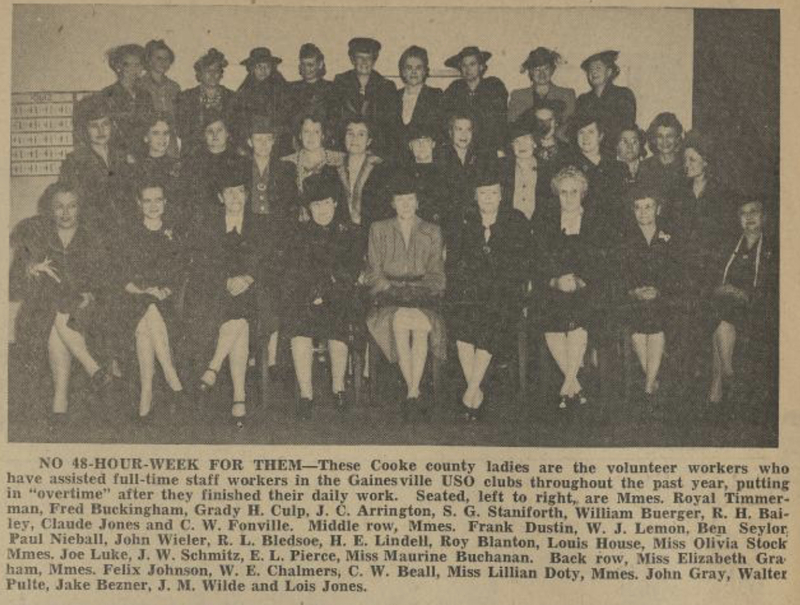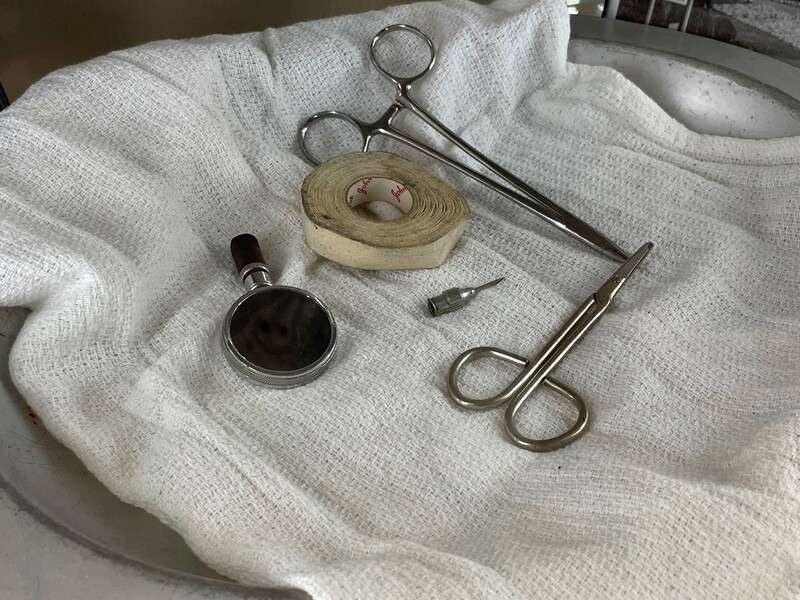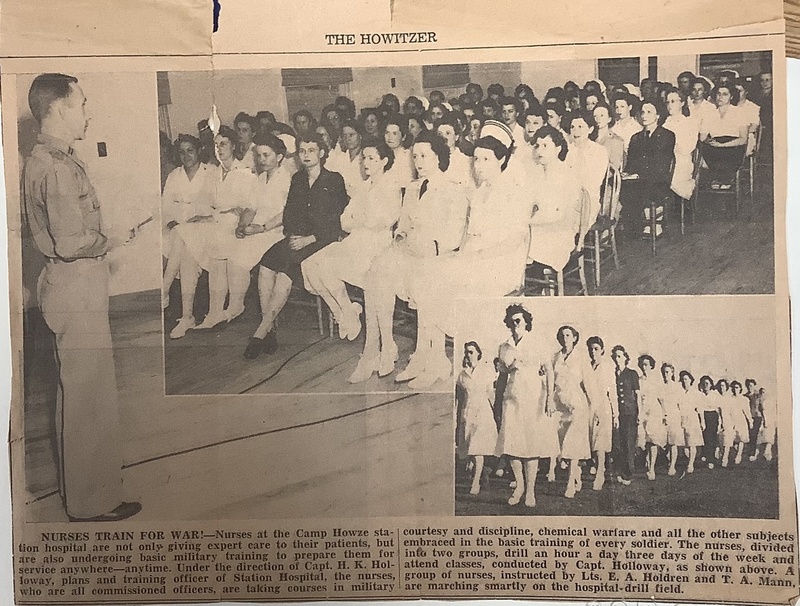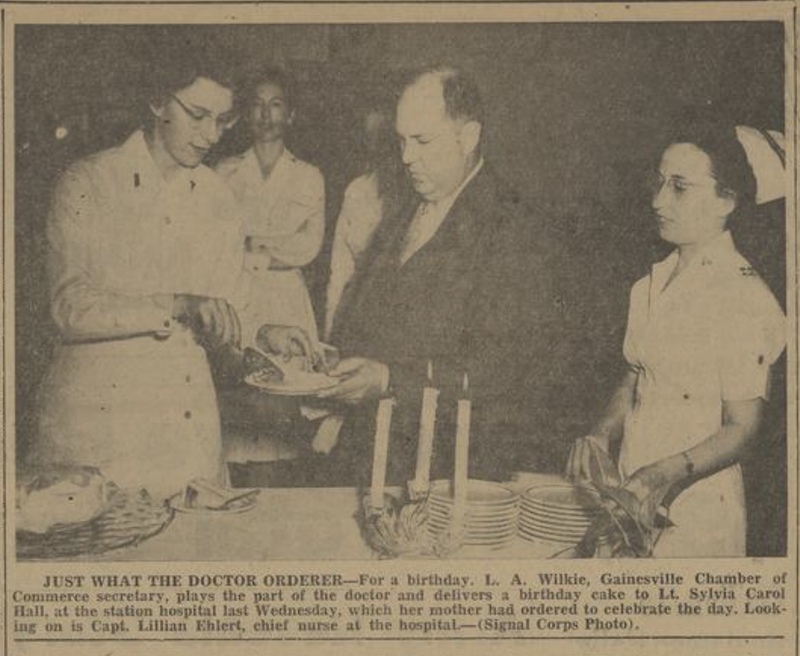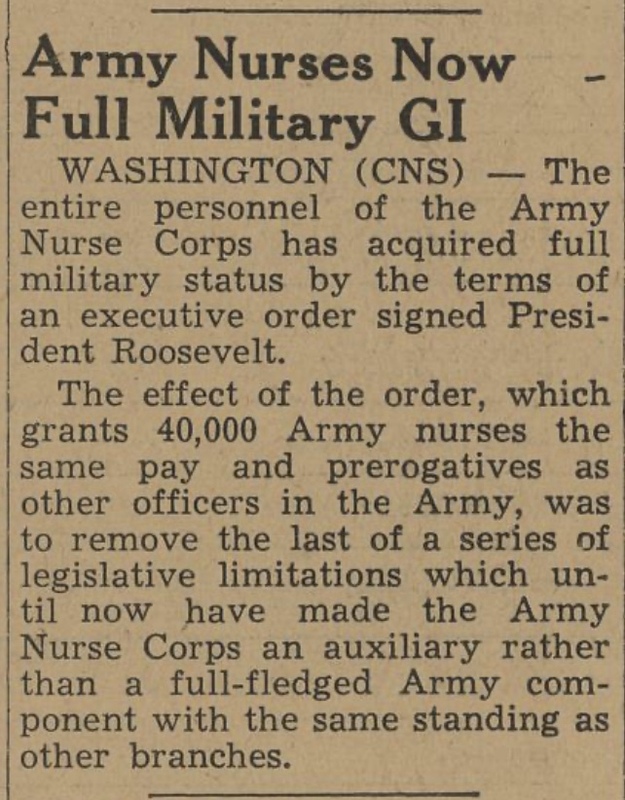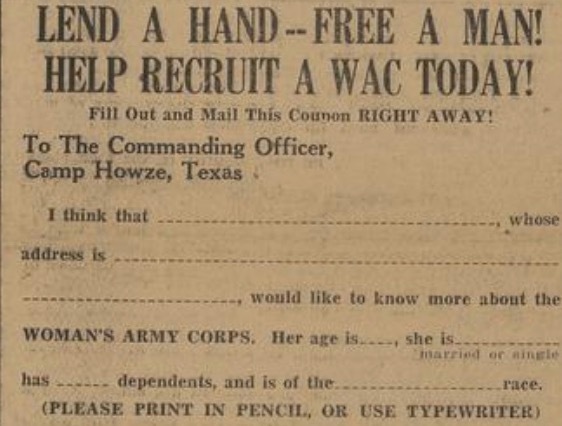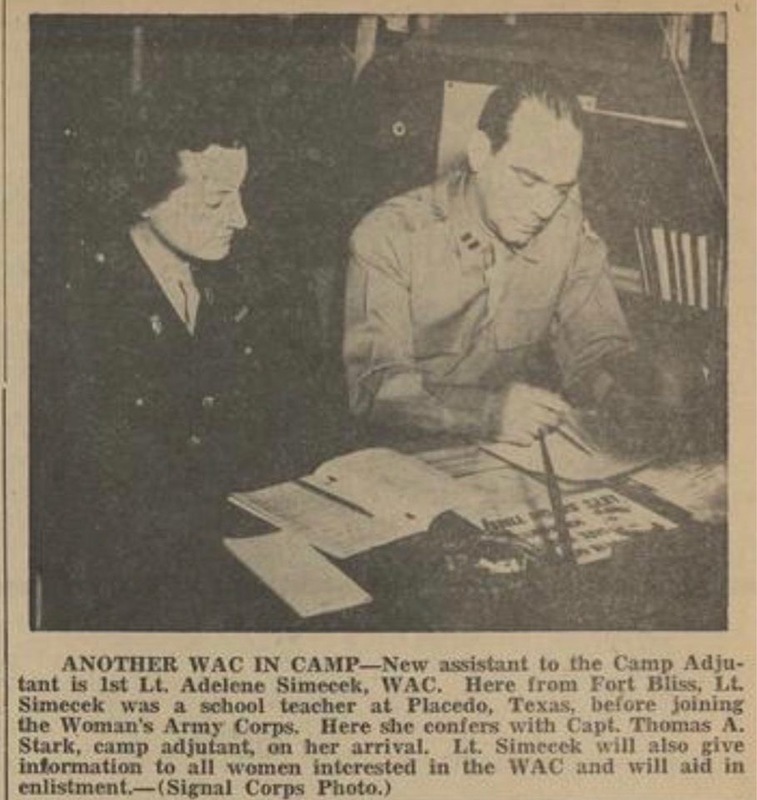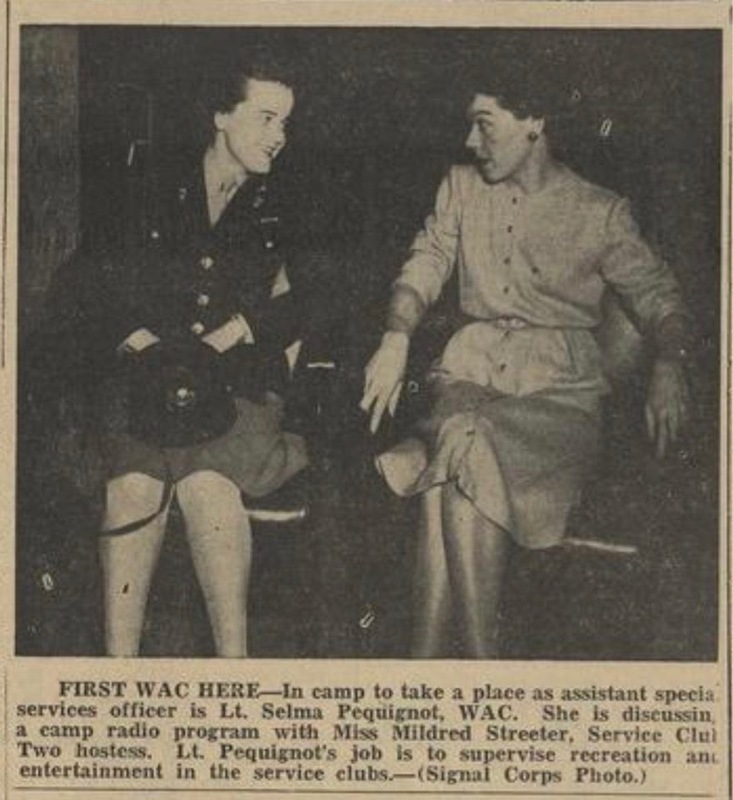Women of Howze
When World War II began, the entire country came together to do what it could to support the war effort. The women who contributed to the success of Camp Howze were no exception. Housewives, mothers, and single women alike participated in the war effort in Camp Howze through nursing, volunteering, and other contributable efforts that broke the gender boundaries at the time. On this page of our museum, we explore the contributions that these women had in the camp, as well as an overview of the general treatment and attitudes towards these women.
Women in Nursing
Nursing Aids
In many military camps across the country during World War II, nursing programs were an important aspect of the camps. When the nursing aid program first started at Camp Howze on September 23, 1943, nineteen housewives from Gainesville and Cooke County were the first women to become Red Cross Volunteer nurse aids for Camp Howze. The first group included five service men's wives, a mother and daughter, several women with sons in the service, and other women with relatives in the service. Reportedly, one young woman walked 3 miles each day to the class. The requirements were to be at least 18 years of age, with no age cap, to be in good health, and to be enthusiastic to do "important work for the war". Further, training required 80 hours but was spread over the course of 6 weeks so women could still run their homes. This training included being trained to assist regular nurses at Camp Howze and their duties at the hospital. Volunteer nurses also aided in minor problems under the direction of the chief nurse, and training included practical nursing. The volunteers first learned how to make beds, and then they went on to learn how to take care of sick soldiers, like taking temperatures, giving baths in beds, and morning and evening care. After that, women learned how to work solo. Camp Howze nurses also learned basic military training in order to serve anywhere. Women took courses in military courtesy and discipline, chemical warfare, and other basic training that every soldier gets. Women drilled for an hour three days a week in order to complete their nursing training. After completing their training, these women began working at the Camp Howze Station Hospital and were required to work a minimum of 3 hours a week.
Army Nurse Corps
During World War II, more than 59,000 women enlisted in the Army Nurse Corps and were eventually granted full military status under President Roosevelt’s orders. Of these women who enlisted, a few could be found in the Camp Howze Station Hospital. Army Nurse Corps worked alongside the nurse aids, where nurse aids assisted them in their duties at the hospital. The Army Nurse Corps also assisted in training civilians in Gainesville to become nurse aides to help relieve the nurse shortage and held positions as chief nurses and Commissioned Officers. Although the Army Nurse Corps were segregated, African Americans in the Army Nurse Corps were also stationed at Camp Howze, where their duties consisted of tending to POW’s and Black servicemen.
Women's Army Corps (WAC)
Following the attack of Pearl Harbor, Congress moved to approve the creation of the Women’s Army Corps (WAC) on May 4, 1942, for the purpose of “making available to the national defense the knowledge, skill, and special training of women of the nation." Soldiers at Camp Howze were urged to assist in the recruitment of WAC members, with several ads throughout the Camp Howze Howitzer paper, often with the quote, “Enlist a WAC and free a man for overseas service”. Many women who signed up to be a part of the WAC were eligible to work between the ages of 20 and 49 and were physically fit. Women were encouraged to enlist with the promise of getting the position that they signed up for within the camp or something that would be a close fit, in order to be able to live close to their homes. Out of these jobs that were available, the most common positions were driving, clerical, or medical. These women were also entitled to the same benefits that male soldiers had, such as health care benefits and access to base facilities such as the hospital. Although a few of the men in Camp Howze did not agree with the incorporation of women in the WAC, articles in the Camp Howze Howitzer urged men to defend their fellow “skirted soldiers” from the insults of other soldiers, as well as, “Give women a chance, whether we like it or not”.
Women Volunteering in Camp Howze
Amongst those who worked and volunteered in Camp Howze were many women. One field of volunteer work that women participated in within Camp Howze was for the Red Cross. During the war, the Red Cross urged local women to visit Red Cross production rooms, due to the high demand for materials needed for the Camp Howze hospital. These women then acquired materials from the Red Cross to make things for Camp Howze within their own homes. Moreover, women who volunteered for the Red Cross also made signs for Camp Howze, as well as provided entertainment such as movies and crafts for the soldiers in the Camp Howze hospital. Women also contributed to the war effort within Camp Howze by taking different positions in the camp as clerks and secretaries, as well as medical technicians in the Camp Howze Hospital.
Wives of Camp Howze
Wives of Camp Howze soldiers were not shy about the collective war effort throughout the camp. The wives of Camp Howze soldiers contributed in many ways, including assisting in organizing inventory in the Camp Howze hospital with the Red Cross and assisting with USO work, and helping Camp Howze soldiers with travel and places to stay along the way. Further, the wives of Camp Howze who lived in the Gainesville area were called to assist in volunteering in different areas of the camp, such as in the Service Club operating the soda fountains, in the guest houses, and in the cafeteria. The wives of Camp Howze were also offered jobs within the camp, such as driving trucks. A few Camp Howze wives held important positions in the war effort, such as WAC Sgt. Dorthy Hood, who worked in Fort Slocum in New York and came to visit her husband on furlough in Camp Howze, Sgt. Glen Hood. Moreover, Camp Howze wives also had a luncheon group that often congregated to discuss how to meet the needs of the men in the camp, and how to best help out throughout Camp Howze.
Women Outside of Camp Howze
Women surrounding Camp Howze in Gainesville and Cooke County were also doing what they could to contribute to the war effort. In a time when the typical role of a woman was to be a stay-at-home housewife or mother, women of Gainesville and Cooke County stepped out of these gender normatives to assist in the war. Women received Cisco training in areas such as fixing motors in cars during the war for the State Board of Vocational Education, and some women mechanics were even assigned to work at Camp Howze, which was groundbreaking work for women at the time. Moreover, women were reportedly driving bread trucks and cabs in Gainesville, becoming part of the country’s first bread truck drivers and filling male-dominated roles while many men were enlisted in the war. On the same note, women were also taking printing jobs operating large machinery in Gainesville.
